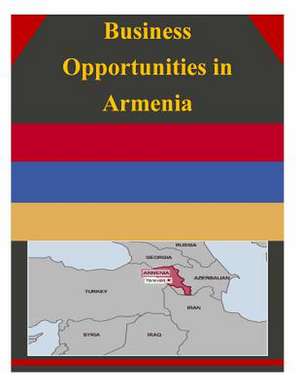Business Opportunities in Armenia
Autor U S Dept of Commerceen Limba Engleză Paperback
Preț: 101.57 lei
Nou
Puncte Express: 152
Preț estimativ în valută:
19.44€ • 20.78$ • 16.20£
19.44€ • 20.78$ • 16.20£
Carte disponibilă
Livrare economică 27 martie-10 aprilie
Preluare comenzi: 021 569.72.76
Specificații
ISBN-13: 9781502334473
ISBN-10: 150233447X
Pagini: 56
Dimensiuni: 216 x 279 x 3 mm
Greutate: 0.15 kg
Editura: CREATESPACE
ISBN-10: 150233447X
Pagini: 56
Dimensiuni: 216 x 279 x 3 mm
Greutate: 0.15 kg
Editura: CREATESPACE
